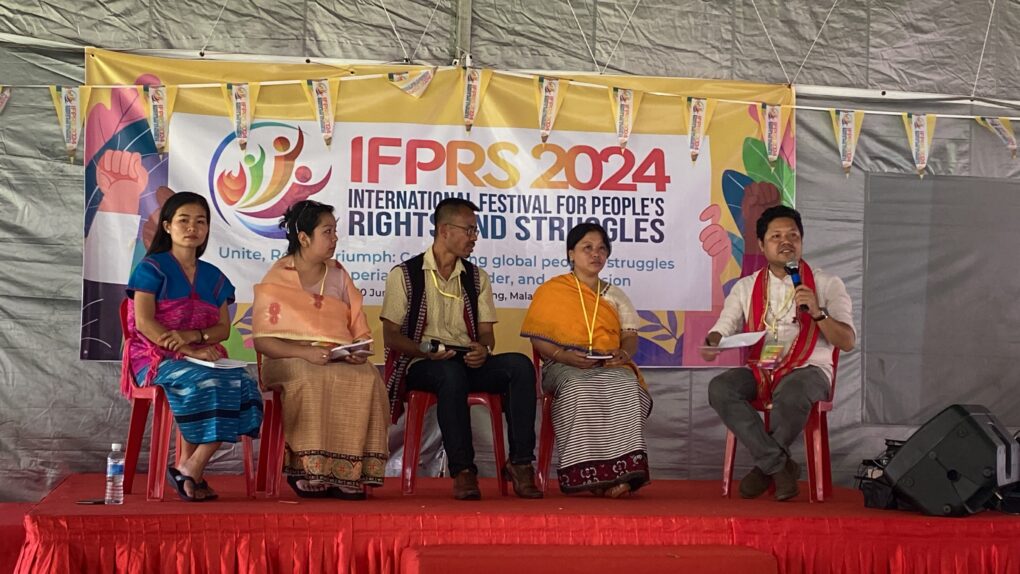
How often do Indigenous Peoples find spaces where they can share their suffering, feel safe, and freely learn and build hope?
Naw Paw Pree, Indigenous Karen from the Karen Human Rights Group (KHRG), joined the International Festival for People’s Rights and Struggles (IFPRS) with IPMSDL as one of the co-organizers, and felt the comfort of being with fellow brother and sisters in struggle for self-determination.
“The “People Power Hour” organised during IFPRS was a global platform where Indigenous Peoples and other marginalised groups were able to make their voices heard at a global scale,” she shared.
In an event organized for Indigenous activists from Karen, Manipur and CHT in Bangladesh, Naw Paw Pree expressed how different victims of oppression around the world gathered to learn and share their experiences, suffering and struggles for their rights to land, culture, tradition, freedom, and self-determination.
“It was a safe space for all people to enjoy freedom of expression, share their feelings, and demand for change,” Paw Pree said.
For her, she learned the similarity between different Indigenous Peoples from around the world: having diverse cultures, traditions, beliefs and social practices, but the same struggles and oppression.
She also felt a deep honour for community members from the indigenous Karen peoples of Southeast Burma to attend the event to learn about the struggles of other Indigenous Peoples and minority communities, and to share the struggles of the Karen peoples.
It was a very touching moment for her as she presents and the participants listened to her peoples’ pain and understood about the Karen people’s struggle to fulfill their basic human rights, to defend their people and land, and for self-determination.
According to her, “their sympathetic response and respectful reflections show the international understanding of our struggles, so it made Karen people feel dignified and it honoured the 75 years of revolutionary struggles.”
“The People Power Hour event made us feel confident to continue our fight, without feeling the burden of other international views that often accuse us of being rebels, terrorists, and dangerous people,” she said with a firm and enlightened smile.
“We need more international solidarity to support the voices of indigenous and minority people and to stand firmly with us,” she added.
##############
———————–The article provided is authorized for use, and represents solely the author’s personal opinions. Please contact us in the event of any potential infringement.



